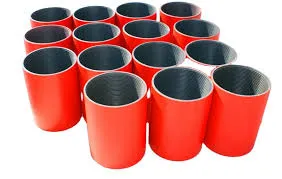- Afrikaans
- Albanian
- Amharic
- Arabic
- Armenian
- Azerbaijani
- Basque
- Belarusian
- Bengali
- Bosnian
- Bulgarian
- Catalan
- Cebuano
- Corsican
- Croatian
- Czech
- Danish
- Dutch
- English
- Esperanto
- Estonian
- Finnish
- French
- Frisian
- Galician
- Georgian
- German
- Greek
- Gujarati
- Haitian Creole
- hausa
- hawaiian
- Hebrew
- Hindi
- Miao
- Hungarian
- Icelandic
- igbo
- Indonesian
- irish
- Italian
- Japanese
- Javanese
- Kannada
- kazakh
- Khmer
- Rwandese
- Korean
- Kurdish
- Kyrgyz
- Lao
- Latin
- Latvian
- Lithuanian
- Luxembourgish
- Macedonian
- Malgashi
- Malay
- Malayalam
- Maltese
- Maori
- Marathi
- Mongolian
- Myanmar
- Nepali
- Norwegian
- Norwegian
- Occitan
- Pashto
- Persian
- Polish
- Portuguese
- Punjabi
- Romanian
- Russian
- Samoan
- Scottish Gaelic
- Serbian
- Sesotho
- Shona
- Sindhi
- Sinhala
- Slovak
- Slovenian
- Somali
- Spanish
- Sundanese
- Swahili
- Swedish
- Tagalog
- Tajik
- Tamil
- Tatar
- Telugu
- Thai
- Turkish
- Turkmen
- Ukrainian
- Urdu
- Uighur
- Uzbek
- Vietnamese
- Welsh
- Bantu
- Yiddish
- Yoruba
- Zulu
Understanding Well Casing Couplings and Their Importance in Oil and Gas Drilling Operations
The Importance of Well Casing Couplings in Oil and Gas Drilling
In the oil and gas industry, the integrity of wells is paramount for successful exploration and production. One of the critical components that contribute to the overall strength and safety of a drilling operation is the well casing coupling. These couplings serve as connectors between the lengths of casing pipes installed within a wellbore. Understanding their significance and functionality is essential for anyone involved in drilling operations.
Understanding Well Casing and Couplings
Well casing refers to a series of steel pipes that line the walls of a wellbore. The primary purpose of casing is to maintain the integrity of the well, prevent collapses, and protect the surrounding environment from contamination. In the installation of casing, individual sections of pipe are joined together using couplings. These couplings are often manufactured from the same material as the casing pipes and come in various sizes and specifications to suit different drilling conditions.
Types of Casing Couplings
Casing couplings can be categorized into different types based on their design and application. The most common types include threaded couplings, welded couplings, and integral couplings.
1. Threaded Couplings These are the most widely used due to their ease of installation and reusability. Threaded connections provide a tight seal and allow for the coupling to be easily unscrewed for repairs or replacement.
2. Welded Couplings As the name suggests, these couplings are welded directly to the casing pipes. This type of coupling offers a robust and permanent connection, making it suitable for high-pressure applications.
3. Integral Couplings These couplings are machined from the same piece of material as the casing pipe, creating a seamless connection that enhances structural integrity and minimizes the risk of leaks.
well casing coupling

The Role of Couplings in Well Integrity
The importance of well casing couplings cannot be overstated. They play a critical role in maintaining well integrity, especially in high-pressure and corrosive environments. A failure in the coupling can lead to significant issues, including well blowouts, contamination of groundwater, and loss of valuable resources. Therefore, ensuring that couplings are properly made and installed is crucial to the overall safety and success of the drilling operation.
In addition to physical strength and stability, couplings also contribute to the overall performance of the casing system. High-quality couplings can enhance the flow of oil or gas through the well by ensuring smooth transitions between sections of casing. Any irregularities or leaks at the couplings can hinder production and lead to costly downtimes.
Best Practices for Usage and Maintenance
To ensure the reliability of well casing couplings, several best practices should be followed. First, proper selection of the coupling type based on the specific conditions of the well is critical. Factors such as pressure, temperature, and the chemical nature of the fluids being managed should all be considered.
Secondly, quality control during the manufacturing process of couplings is essential. Using couplings that meet industry standards and undergo rigorous testing can prevent failures. Regular inspections and maintenance checks during the operational phase can also identify potential issues before they become critical.
Conclusion
In conclusion, well casing couplings serve as vital components in the oil and gas drilling industry, providing the necessary connections that ensure well integrity and operational efficiency. By understanding their types, functions, and importance, professionals in the field can make informed decisions that enhance safety and productivity in drilling operations. As technological advancements continue to evolve, the role of these couplings may transform, but their fundamental importance will remain a key element in the pursuit of successful hydrocarbon extraction.
-
Tubing Pup Joints: Essential Components for Oil and Gas OperationsNewsJul.10,2025
-
Pup Joints: Essential Components for Reliable Drilling OperationsNewsJul.10,2025
-
Pipe Couplings: Connecting Your World EfficientlyNewsJul.10,2025
-
Mastering Oilfield Operations with Quality Tubing and CasingNewsJul.10,2025
-
High-Quality Casing Couplings for Every NeedNewsJul.10,2025
-
Boost Your Drilling Efficiency with Premium Crossover Tools & Seating NipplesNewsJul.10,2025







